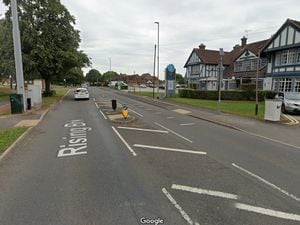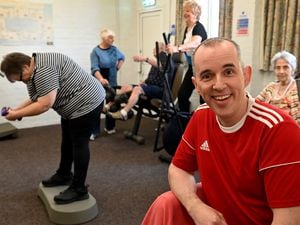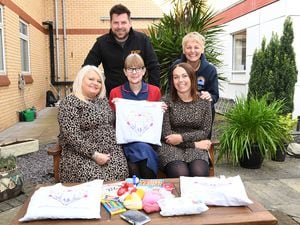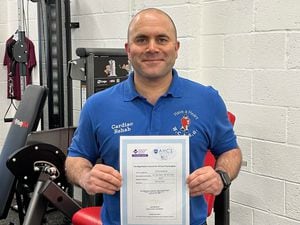Hand surgeon performs life-changing surgery using 3D technology in national first
A hand surgeon performed a national first when he used 3D printing technology to carry out four wrist corrective operations in a single day.
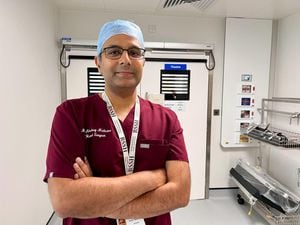
Akshay Malhotra, consultant orthopaedic surgeon and clinical lead for hand and wrist surgery at University Hospitals of North Midlands NHS Trust (UHNM), was able to correct the deformity of the previously broken bones in the wrist of four patients with bespoke titanium 3D-printed plates.
The procedures, known as distal radius corrective osteotomies, took place at the recently opened North Midlands Hand Centre at County Hospital in Stafford.
Mr Malhotra said: “Distal radius fractures are one of the most common fractures in adults.
"Most are treated successfully with a cast with no long-term problems. However, for some patients, the wrist bone heals with a deformity which may be painful or lead to weakness.
"This subgroup of patient might require surgery to correct the underlying deformity.
“With the 3D printing technology each patient undergoes a CT scan of both forearms and wrist.
"The injured bone (distal radius) is then reconstructed to match the normal side. During the design process we sit with engineers in Germany to plan the deformity correction process.
“We use computer software to rebuild the whole forearm enabling us to plan the surgery to finer details ensuring the rotation, length and angle of the bone and joint is correct. This in turn helps us to regain the cosmetic and hopefully the functional potential of that arm.
“Once this planning process has occurred, the bespoke plate is printed using powdered titanium; then tested, shipped to the UK and sterilised at County Hospital ready for surgery.”
Mr Malhotra said patients were awake throughout thanks to the use of nerve block by his anaesthetic colleagues.
Most surgeries at the new Hand Centre now are performed under nerve blocks which have shown to offer better postoperative pain relief, faster recovery, less nausea, and a lower risk of blood clots than a general anaesthetic, he said.
“By staying awake patients can see the end results on an x-ray right beside the operating table and can meet, talk to fellow patients at the Hand Centre improving their experience with us," added Mr Malhotra.
“Carrying out four operations in the same day has benefits for both UHNM and the patient.
"This requires a lot of complex kit which can be brought to the North Midlands Hand Centre for use on the same day rather than being done on multiple days to avoid additional cost.
"This also enables theatre staff to be trained more efficiently. From patients’ perspective, they have the advantage of a specialised and experienced staff looking after them.
“I would like to thank the whole team including my departmental colleagues, anaesthetists, radiologists, theatre staff, recovery team, secretaries, hand therapists, outpatient team and management team at the North Midlands Hand Centre who have worked tirelessly to make this possible.”
Since opening on July 10, the team at the North Midlands Hand Centre have already operated on more than 200 cases covering a wide a variety of elective and trauma procedures.
This has enabled UHNM to reduce waiting times for hand and wrist surgery.

